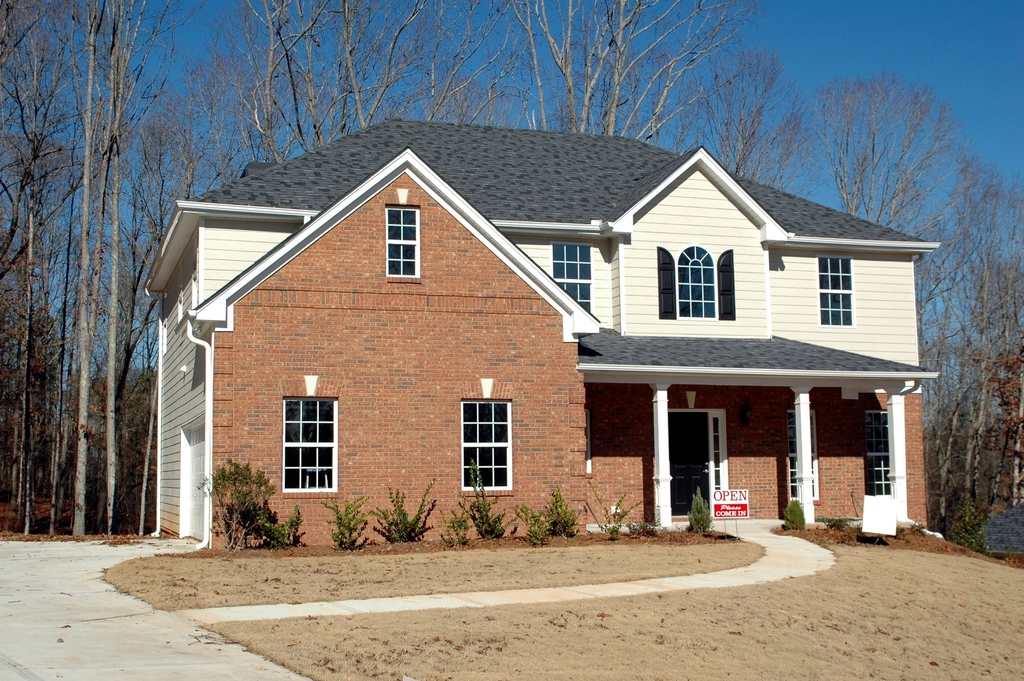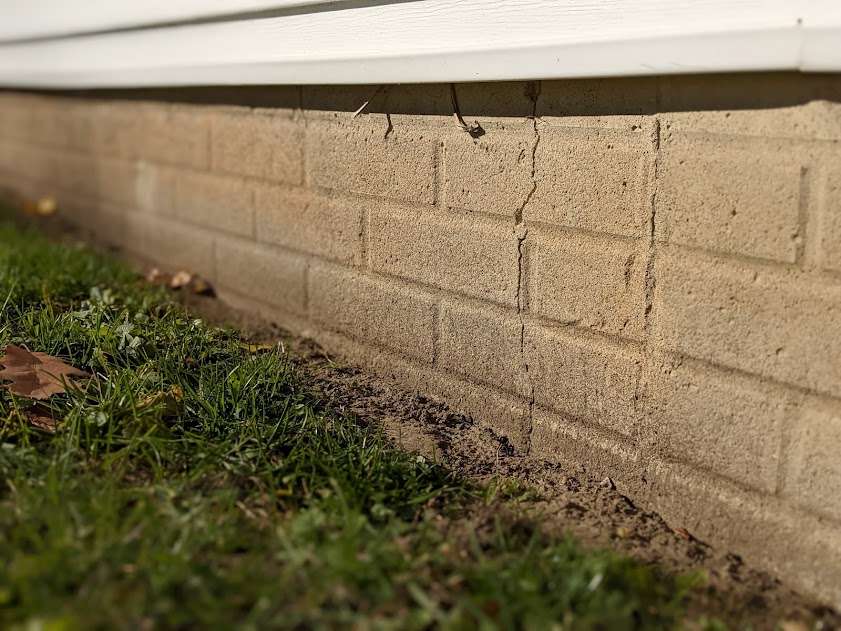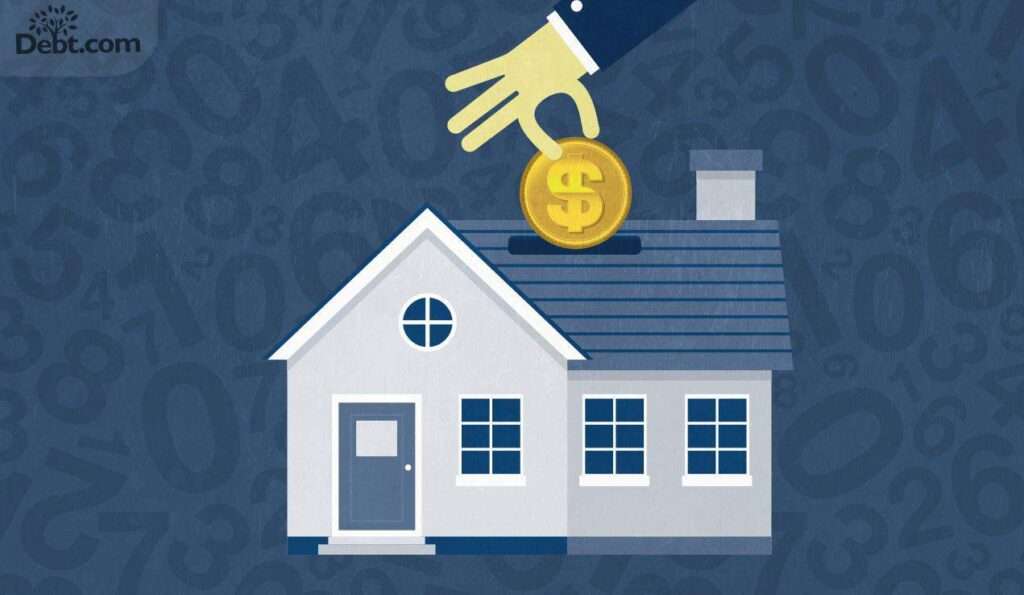Yes, you can sell your house above market value, but it may be easier in a seller’s market rather than a buyer’s market. To achieve this, you’ll need a strong strategy that includes setting the right listing price, staging the property to highlight its best features, and working with a knowledgeable Realtor.
Selling a house above market value can potentially result in financial problems for the buyer, so it’s important to carefully consider the consequences before making this decision.
Factors That Influence Market Value
Market value is a dynamic concept in the real estate industry, shaped by a myriad of factors. Location stands as a cornerstone, with properties nestled in desirable neighborhoods or close to amenities enjoying higher market values. Size and layout play a crucial role, as larger, well-designed homes often command a premium. The condition of a property is another vital determinant, with well-maintained homes attracting higher prices. Moreover, market demand is a dynamic variable, as it can tilt the balance in favor of either sellers or buyers, directly impacting property values. These interconnected factors collectively influence the ever-changing landscape of property market values.
Location
The location of a property is one of the most important factors that influence its market value. Properties located in desirable neighborhoods, close to amenities such as schools, parks, shopping centers, and transportation hubs, tend to have higher market values. On the other hand, properties in less desirable areas or those facing issues like high crime rates or limited access to amenities may have a lower market value.
Size And Layout
The size and layout of a house also play a significant role in determining its market value. Larger houses with more bedrooms, bathrooms, and living spaces generally command higher prices in the market. Additionally, modern and functional layouts that maximize usable space are often favored by buyers, which can increase the market value of a property.
Condition Of The Property
The condition of a property is a crucial factor in its market value. Well-maintained homes with minimal issues or repairs needed tend to have higher market values. On the other hand, properties that require significant renovations or have structural issues may have lower market values. Buyers are willing to pay a premium for move-in ready homes as opposed to properties that require immediate repairs or updates.
Market Demand
The level of demand in the real estate market also has a direct impact on property values. In a seller’s market where there are more buyers than available homes, sellers may have more flexibility to sell a house above market value. On the other hand, in a buyer’s market where there are more properties for sale than buyers, sellers may need to price their homes competitively or even below market value to attract buyers.
Bringing it All Together
Considering these factors – location, size and layout, condition of the property, and market demand – is essential when determining whether selling your house above market value is a feasible option. It’s crucial to analyze the local real estate market conditions, consult with a qualified real estate agent, and strategize accordingly to maximize your chances of fetching a higher price for your property.
Setting The Right Price
Setting the right price for your home is a critical decision when selling it. This process involves thorough research of comparable sales in your neighborhood, consideration of professional appraisals, and consultation with a knowledgeable real estate agent. Properly pricing your property ensures that it is competitive in the market while maximizing your chances of selling at the best possible value. It’s a delicate balance between attracting potential buyers and getting a fair return on your investment. By following these steps and seeking expert guidance, you can navigate this crucial aspect of the home-selling process with confidence.
Research Comparable Sales
Before deciding on a listing price for your house, it is essential to research comparable sales in your neighborhood. This will give you a clear idea of the market value for similar properties in the area. Look for recently sold homes that are similar in size, condition, and location to yours. Pay attention to the final selling prices and any price reductions that may have occurred during the sale process.
Consider Appraisals
While researching comparable sales can give you a rough estimate of your home’s value, it is important to consider getting an official appraisal. An appraisal conducted by a certified professional appraiser will provide an unbiased evaluation of your property’s worth. This can be particularly helpful if you believe your house has unique features or upgrades that may increase its value above market standards. Keep in mind that appraisals tend to be conservative and may come in lower than your desired listing price.
Consult A Real Estate Agent
One of the best ways to set the right price for your house and increase your chances of selling above market value is to consult a professional real estate agent. Experienced agents have extensive knowledge of the local market and can provide valuable insights into pricing strategies. They will evaluate your property, consider market conditions, and guide you in determining a competitive but realistic listing price. A real estate agent can also help market your home effectively to attract potential buyers who are willing to pay a premium price.
Consult Julio Gaton now:
Your journey to the perfect home or a seamless sale begins here. Let’s make your real estate dreams a reality.
Benefits Of Selling Above Market Value
When it comes to selling your house, most homeowners aim to get the best possible price. In some cases, this means selling above market value. While selling above market value may seem like a stretch, it can bring several benefits to homeowners. In this section, we will explore the benefits of selling above market value.
Increased Profit Potential
One of the main benefits of selling your house above market value is the increased profit potential. By setting a higher price, you have the opportunity to earn more money from the sale. This is especially advantageous if your property has unique features or is located in a highly desirable area. Selling above market value can maximize your return on investment and help you achieve a higher profit.
Attracting Serious Buyers
Setting your house’s price above market value can also help attract serious buyers. When potential buyers see a higher asking price, it often signals that the property is of high quality and offers exceptional value. Serious buyers who are willing to pay a premium for the right property are more likely to consider your house, increasing your chances of a successful sale. This can save you time and effort by attracting qualified buyers who are genuinely interested in your property.
Negotiation Power
Another benefit of selling above market value is the increased negotiation power it gives you as a seller. Setting a higher price initially allows room for negotiation, giving you more leverage during the negotiation process. Buyers may feel more inclined to negotiate when they see that the asking price is higher, allowing you to potentially secure a sale price that is closer to your desired amount. Having negotiation power can help ensure that you get the best possible deal for your house.
Risks Of Selling Above Market Value
Selling above market value comes with inherent risks that sellers should be aware of. These risks include limited buyer interest, the potential for a prolonged time on the market, and challenges related to property appraisal. It’s important to carefully weigh these risks when considering a higher selling price to make informed decisions that align with your real estate goals.
Limited Buyer Interest
One of the main risks of selling your house above market value is limited buyer interest. When you set the price of your house significantly higher than what comparable properties in the market are selling for, you may struggle to attract potential buyers. Buyers are savvy and do thorough research before making a purchase. If your house is priced too high, it will likely be out of their budget range or considered too expensive for what it offers. This can lead to limited buyer interest and fewer offers.
Prolonged Time On The Market
Selling your house above market value can also result in a prolonged time on the market. If your property is priced higher than what buyers are willing to pay, it may sit unsold for an extended period of time. The longer your house stays on the market, the higher the chance it will become stigmatized. Potential buyers may wonder why your house hasn’t sold and assume that there’s something wrong with it, even if that’s not the case. This can make it even more difficult to attract buyers and negotiate a favorable selling price.
Appraisal Challenges
Another risk of selling above market value is appraisal challenges. When a buyer applies for a mortgage to purchase your house, their lender will require an appraisal to determine its value. If the appraised value comes in lower than the selling price, it can create difficulties in the sale process. Lenders typically won’t approve a mortgage for an amount higher than the appraised value, leaving the buyer with the task of either renegotiating the price or coming up with the difference in cash. This can lead to delays, renegotiations, and even potential deal cancellations.
Strategies For Selling Above Market Value
When it comes to selling your house above market value, employing the right strategies is crucial. While it may seem challenging to sell your property for a higher price than what the market dictates, there are several tactics you can implement to achieve this goal. In this blog post, we will explore some effective strategies that can help you sell your house above market value.
Enhancing Curb Appeal
First impressions matter when it comes to attracting potential buyers. Enhancing the curb appeal of your house can significantly impact its perceived value. Here are a few ways to enhance curb appeal:
- Clean and declutter the exterior of your house
- Maintain a well-manicured lawn and garden
- Power wash the exterior walls and driveway
- Repaint the front door
- Invest in outdoor lighting to highlight architectural features
Upgrading Key Areas
Upgrading key areas of your house can significantly increase its value and attract potential buyers willing to pay above market value. Consider focusing on the following areas:
- Kitchen: Update outdated appliances, replace countertops, and modernize the cabinets.
- Bathrooms: Replace old fixtures, upgrade the shower or bathtub, and add modern touches like a heated towel rack.
- Flooring: Install high-quality flooring materials such as hardwood or tile.
- Lighting: Replace outdated light fixtures with modern, energy-efficient options.
- Energy Efficiency: Invest in energy-efficient windows, insulation, and appliances, which can be attractive to prospective buyers.
Staging The Property
Staging your house can have a significant impact on its perceived value. Effective staging can help potential buyers envision themselves living in the space and justify paying a premium price. Consider the following strategies for effective staging:
- Declutter and remove personal items to create a neutral and inviting atmosphere.
- Arrange furniture to maximize space and highlight the layout of the rooms.
- Use neutral colors and minimalistic decor to appeal to a wider range of buyers.
- Consider hiring a professional staging company for expert advice and assistance.
Marketing Techniques
Implementing effective marketing techniques is essential to attract potential buyers willing to pay above market value. Here are some marketing strategies to consider:
| Online Listing: | Create a compelling and detailed online listing with professional photos, showcasing the best features of your house. |
|---|---|
| Social Media: | Utilize social media platforms to promote your listing and reach a wider audience. |
| Open Houses: | Host well-planned open houses to allow interested buyers to experience your property firsthand. |
| Networking: | Tap into your network and contacts to spread the word about your listing. |
| Collaboration with Realtor: | Work closely with a knowledgeable and experienced realtor who can utilize their network and expertise to attract potential buyers. |
By implementing these strategies, you can increase the chances of selling your house above market value. Remember to analyze the local market conditions and consult with real estate professionals to determine the optimal listing price for your property. With a well-executed strategy, you can maximize your selling potential and secure a higher price for your house.
Preparing For Appraisal
Preparing for an appraisal is a critical step in selling your property above market value. To ensure a favorable appraisal outcome, it’s essential to complete necessary repairs and renovations, gather documentation of improvements, and effectively communicate these upgrades to the appraiser. By presenting a well-maintained and improved property with proper documentation, you increase the likelihood of an appraisal that reflects the true value of your home, supporting your goal of selling above market value.
Completing Necessary Repairs And Renovations
Before selling your house above market value, it’s essential to complete any necessary repairs and renovations. When an appraiser examines your property, they consider its overall condition, which can have a significant impact on the appraisal value. By addressing any issues beforehand, you can enhance the overall appeal and value of your home.
Make sure to fix any structural problems, update outdated features, and address any visible wear and tear. This includes repairing leaky faucets, replacing cracked tiles, fixing electrical issues, and ensuring that all appliances are in good working condition. The more well-maintained your property is, the higher its chances of being appraised above market value.
Gathering Documentation Of Improvements
Another crucial step in preparing for appraisal is gathering documentation of any improvements made to your property. This documentation includes invoices, receipts, and permits for renovations, upgrades, or additions made to your home.
By providing this evidence to the appraiser, you can showcase the investment you’ve made in enhancing your property’s value. This can include major renovations like kitchen or bathroom remodels, as well as smaller upgrades such as installing energy-efficient windows or adding landscaping features.
Communicating Upgrades To The Appraiser
During the appraisal process, it’s important to communicate all the upgrades and improvements you’ve made to your property. This ensures that the appraiser has a clear understanding of the enhancements you’ve made and can accurately assess the value they bring.
Prepare a list of all the upgrades, highlighting their impact on the property’s functionality, aesthetics, and energy efficiency. Share this list with the appraiser during the appraisal visit or provide it as documentation along with the gathered receipts and permits. This clear communication increases the likelihood of your home being appraised above market value.
Ultimately, selling your house above market value is possible with proper preparation and documentation. Completing necessary repairs and renovations, gathering documentation of improvements, and effectively communicating upgrades to the appraiser are essential steps to increase the chances of an appraisal that reflects the true value of your home.
Pricing Strategies For Success
When it comes to selling your house, pricing it correctly is crucial for a successful sale. However, have you ever considered listing your house above market value? Although it may seem counterintuitive, selling your house above market value is a strategy that can yield positive results if implemented correctly. In this blog post, we will explore three pricing strategies for selling your house above market value: pricing slightly above market value, offering incentives, and exploring unique selling points.
Pricing Slightly Above Market Value
One popular strategy for selling your house above market value is pricing it slightly higher than the current market value. By doing so, you create the perception of exclusivity and urgency, enticing buyers who are willing to pay a premium for the property. However, it is important to strike the right balance. Pricing your house too high can deter potential buyers, leading to your property languishing on the market. On the other hand, if priced just above market value, it can attract interested buyers and create a sense of value.
Offering Incentives
Another effective pricing strategy for selling your house above market value is offering incentives to potential buyers. These incentives can include seller-paid closing costs, home warranty plans, or even providing some furniture or appliances as part of the deal. By offering these attractive benefits, you can offset the higher listing price and make your property stand out from the competition. Buyers may be more willing to pay above the market value if they perceive added value in the form of incentives.
Exploring Unique Selling Points
Every house has unique selling points that make it stand out from others in the market. By highlighting these unique features and emphasizing the benefits, you can justify a higher listing price. For example, if your house has a beautifully landscaped backyard, a spacious open floor plan, or upgraded kitchen appliances, make sure to showcase these qualities to potential buyers. Moreover, you can focus on the location advantages, such as proximity to schools, parks, or shopping centers, that make your property desirable. Emphasizing these unique selling points can justify a higher asking price and attract buyers who value these features.
In conclusion, selling your house above market value is possible with the right pricing strategies. By pricing slightly above market value, offering incentives, and exploring your property’s unique selling points, you can increase the perceived value of your house. However, it is crucial to strike a balance and ensure that the pricing aligns with the current market conditions. By implementing these strategies with the help of a knowledgeable real estate agent, you can increase your chances of selling your house above market value and maximizing your profit.

Credit: HubSpot
Negotiating With Potential Buyers
Negotiating with potential buyers is a crucial aspect of the real estate sales process. It involves effectively communicating the value of your property, addressing buyer objections, and considering counteroffers. To secure a successful sale above market value, highlighting your property’s unique features, location, and recent upgrades is essential. When objections arise, respond professionally by showcasing the property’s strengths and its competitive advantage. Lastly, when evaluating counteroffers, balance your financial goals with the buyer’s affordability to achieve a mutually beneficial outcome. Effective negotiation skills can make all the difference in achieving your desired selling price.
Highlighting The Property’s Value
When negotiating with potential buyers, it is important to highlight the value of your property. By emphasizing its unique features, desirable location, and any recent upgrades or renovations, you can justify selling your house above market value.
One effective way to showcase the value is to create a visually appealing listing with high-quality photos and a detailed description. This will attract more potential buyers and give them a better understanding of why your house is worth the asking price.
In addition to visual elements, you can also provide supporting data such as recent comparable sales in the area to demonstrate the competitive nature of the market and justify the higher price tag.
Responding To Buyer Objections
When negotiating with potential buyers, you may encounter objections to the higher asking price. It is important to address these objections in a professional and persuasive manner. Below are some common objections and ways to respond:
- “The price is too high.” Explain the unique features and upgrades of your property that justify the higher asking price. Compare it to other similar homes in the area that have sold for a similar price.
- “We can find a better deal elsewhere.” Emphasize the value and benefits of your property, such as its location, amenities, and any potential for future appreciation. Show them that your house offers a unique opportunity that may not be available elsewhere.
- “We’re concerned about future market fluctuations.” Highlight the stability of the housing market in your area and provide data or expert opinions that demonstrate its positive outlook. Assure the buyers that investing in your property is a safe and wise decision.
By addressing buyer objections with confidence and providing compelling counterarguments, you can increase the chances of successfully negotiating a sale above market value.
Considering Counteroffers
During the negotiation process, it is common for potential buyers to submit counteroffers in an attempt to bring down the selling price. When considering these counteroffers, it is important to keep a few things in mind:
- Evaluate the buyer’s affordability: Assess the financial capability of the buyer to determine if their counteroffer is reasonable and within their budget.
- Weigh the potential benefits: Consider the potential advantages of accepting a lower offer, such as a quicker sale or more favorable terms.
- Reassess your bottom line: Evaluate your own financial goals and objectives to determine if accepting a lower offer aligns with your overall selling strategy.
When considering counteroffers, it is important to strike a balance between maximizing the sale price and ensuring a mutually beneficial outcome. Through effective negotiation, you can potentially reach a compromise that satisfies both parties.
Monitoring The Market
Monitoring the market is a fundamental component of selling a property above market value. This involves staying informed about current real estate conditions in your area, assessing supply and demand, pricing patterns, and overall buyer interest. By actively tracking these market trends, you can make informed decisions about when and at what price to sell your property, ultimately increasing your chances of a successful and profitable sale.
Staying Aware Of Market Trends
When it comes to selling your house above market value, one crucial step is to monitor the market trends. Staying informed about the current real estate conditions in your area will help you evaluate whether it’s the right time to sell and at what price. By keeping a close eye on the market, you can gather valuable information about housing supply and demand, pricing patterns, and overall buyer interest.
Adjusting The Price Accordingly
Based on your market research and analysis, it is essential to adjust the price of your house accordingly. Setting a price above market value can be risky if there is not enough demand or similar properties available at higher prices. However, if the market is experiencing high demand and low inventory, you might have more flexibility to set a higher price. It’s crucial to strike a balance between attracting potential buyers and maximizing your profit.
Evaluating Buyer Interest
Evaluating buyer interest is another vital aspect when selling your house above market value. By monitoring the market, you can gauge the level of interest from potential buyers, the number of inquiries, and the length of time similar properties spend on the market. This information will help you assess the demand for your house and make necessary adjustments to the pricing strategy. Remember, the goal is to generate sufficient interest and create a competitive environment for potential buyers.
Working With Real Estate Professionals
When it comes to selling your house above market value, working with experienced real estate professionals can make all the difference. Hiring an experienced real estate agent ensures that you have a knowledgeable and skilled professional by your side throughout the selling process. Their expertise in pricing and the real estate market can help you determine a competitive and realistic asking price for your property. Moreover, seeking guidance from real estate professionals ensures that you receive valuable advice and support throughout the selling process, increasing your chances of selling your house above market value.
Hiring An Experienced Real Estate Agent
An experienced real estate agent plays a crucial role in helping you sell your house above market value. They bring their extensive knowledge and expertise to help you navigate the complex world of real estate. With their understanding of market trends, they can provide you with valuable insights and advice on when and how to list your house for maximum profit.
Utilizing Their Expertise In Pricing
One of the main advantages of working with real estate professionals is their expertise in pricing. They have a deep understanding of the local real estate market and can evaluate comparable properties to determine the right asking price. By utilizing their expertise, you can avoid the pitfalls of overpricing or underpricing your property.
Seeking Guidance Throughout The Selling Process
Real estate professionals can guide you through each step of the selling process, ensuring that you make informed decisions. They can assist you in preparing your house for sale, staging it to highlight its best features, and marketing it to the right audience. Their guidance ensures that your house stands out in the market, attracting potential buyers and increasing your chances of selling above market value.
Frequently Asked Questions On Can You Sell Your House Above Market Value?
Do Houses Usually Appraise For More Than Selling Price?
Appraisals usually come in lower than the selling price because they look at past sales and don’t consider future prices. It’s like pricing gas based on yesterday’s price instead of today’s market conditions.
What Happens If I Price My House Too High?
Selling your house too high may result in the house sitting on the market without any offers. It may require steep price drops to attract attention after it has been on the market for some time. It is important to price your house accurately to attract potential buyers.
Should You Sell House When Market Is High?
Selling your house when the market is high can be advantageous. In a seller’s market with high demand and low inventory, it may be a favorable time to sell. Monitor trends in home prices and mortgage interest rates to make an informed decision.
However, be cautious not to list your house too high, as overpriced homes take longer to sell.
Why Not To List A House Too High?
Listing a house too high can have several negative consequences. Firstly, it can deter potential buyers as they may see the price as unreasonable. Secondly, an overpriced house tends to stay on the market for longer, leading to reduced interest and a lower chance of selling.
Lastly, if the price is eventually lowered, it may lead buyers to question the value and quality of the property. Therefore, it is important to accurately price the house to attract potential buyers and increase the chances of a successful sale.
Can You Sell Your House For More Than Its Appraised Value?
Yes, you can sell your house for more than its appraised value, but it may not be ideal as it can cause financial complications.
Should I Sell My House When The Market Is High?
Selling your house when the market is high, characterized by high demand and low inventory, can be advantageous for obtaining a higher selling price.
What Happens If I Price My House Too High?
If you price your house too high, buyers may see it as overpriced, resulting in it sitting on the market without any offers. This may require steeper price drops to attract attention.
Can I Sell My House Above Market Value?
Yes, you can sell your house above market value, but it is generally easier to do so in a seller’s market compared to a buyer’s market. A strong strategy is required, including the right listing price, staging, and working with a great Realtor.
Do Houses Usually Appraise For More Than The Selling Price?
Appraisals typically come in lower than the selling price because they look at past homes sold and do not account for future market conditions.
Why Should I Avoid Listing My House Too High?
Listing your house too high can make it sit on the market for a longer time. Potential buyers are more likely to focus on other accurately priced houses for sale, bypassing your overpriced listing.
Conclusion
Selling your house above market value is possible, but it requires a strong strategy. Pricing your home correctly, staging it to showcase its best features, and working with a great realtor are essential components. However, it’s important to remember that selling above market value may not be ideal for buyers as it can create financial issues.
Carefully weigh the pros and cons before making a decision.








